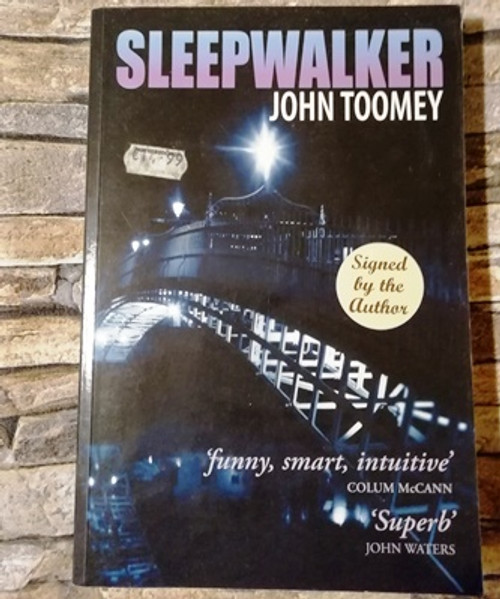Product Description
( HEAVY) age spotting to the page block , tanning to all pages, and light edgewear to the dustjacket. Moderate to heavy sunfade to the spine.
O'Dwyer, John Gerard (‘Ged’) (1899–1996), Irish Volunteer, army officer, and showjumper, was born 12 April 1899 at Rahen, near Grange, Bruff, Co. Limerick, Educated at Grange National School and the De La Salle Brothers school at Bruff, he began to take an interest in horses and sports at a young age.
After the death of his father in January 1918, he took over the running of the family farm. In 1917 he joined the Irish Volunteers and became a lieutenant in the company based at Grange. Active during the war of independence (1919–21), he took part in numerous ambushes and raids for arms, including the raid on Kilmallock RIC station in May 1920. He spent months evading capture and the family home was later burned down by the Black and Tans during reprisals in the area. After the Anglo–Irish treaty he joined the new National Army and was commissioned commandant in February 1922. He fought in Co. Limerick during the civil war (1922–3) and remained in the army at the end of hostilities, being reduced in rank to captain.
During postings in Co. Limerick and Co. Cork, O'Dwyer continued to ride to hounds, especially with the Avondhu Hunt in Co. Cork, gaining a reputation as a skilful horseman. In April 1926 he was summoned to McKee Barracks in Dublin to join the newly formed Army Equitation School and at the RDS horse show that year won second place in the international military jumping event, helping the Irish team to second place in the Aga Khan trophy competition. It was the beginning of a distinguished showjumping career and O'Dwyer later gave full credit for the team's success to their coach Colonel Paul Rodzianko, former equerry to the tsar of Russia, noting that he ‘took a bunch of raw farmers’ sons and in three years turned us into the greatest national team of all time’ (quoted in Boylan). In 1928 O'Dwyer became captain and with a team that included Captain Jack Lewis and Daniel Corry (1902–90) won the Aga Khan trophy. Despite the fact that they were competing against teams which had far greater resources, the Irish soon established themselves as a dominant force in international showjumping. Promoted commandant in 1931, O'Dwyer led his team to victory in the Aga Khan competition in 1932 and to a further four successive wins (1935–8). They also won eight Nations Cups in a row, O'Dwyer usually mounted on his favourite horse Limerick Lace, a pairing that became household names in Ireland and helped make showjumping one of the most popular sports of the 1930s.
Despite their success, the team was not sent to the 1936 Berlin Olympics because of a dispute between the National Athletics and Cycling Association of Ireland and the International Athletics Federation. O'Dwyer attended the games as an observer and found it frustrating to watch the German team winning gold in the showjumping event, having accumulated forty-four faults. As Ireland had not accumulated more than twelve faults in recent Nations’ Cup events, he believed that his team could have won an Olympic gold medal and, indeed, the Irish beat the Germans into second place in the German Nations Cup in 1937.
The outbreak of the second world war put an end to international eventing and, promoted to major, O'Dwyer took command of the 18th infantry battalion. Becoming increasingly disillusioned with the army, he resigned his commission in October 1943 after being passed over for promotion. He returned to Limerick and lived at ‘Roseneath’ on the Mill Road in Corbally. Devoting himself to breeding and training horses, he remained active in the Irish Hunter Improvement Society and the Limerick Races Board, serving as chairman of both of these bodies. One of the horses he trained, Ballyneety (ridden by Captain Kevin Barry), won the British Show Jumping Association's King George V Gold Cup in 1951. O'Dwyer died 12 March 1996, aged ninety-seven.
 Euro
Euro
 British Pound
British Pound








